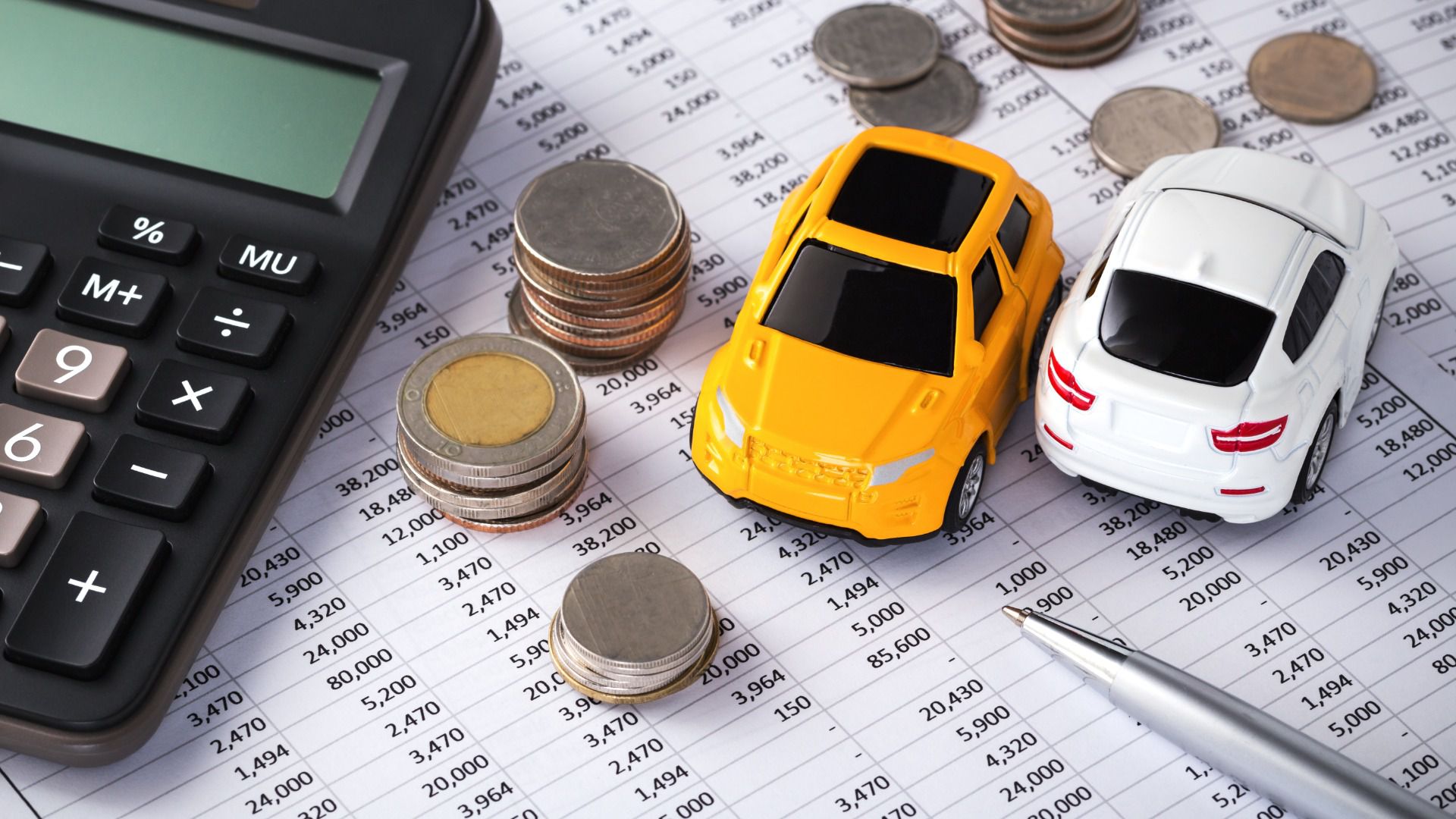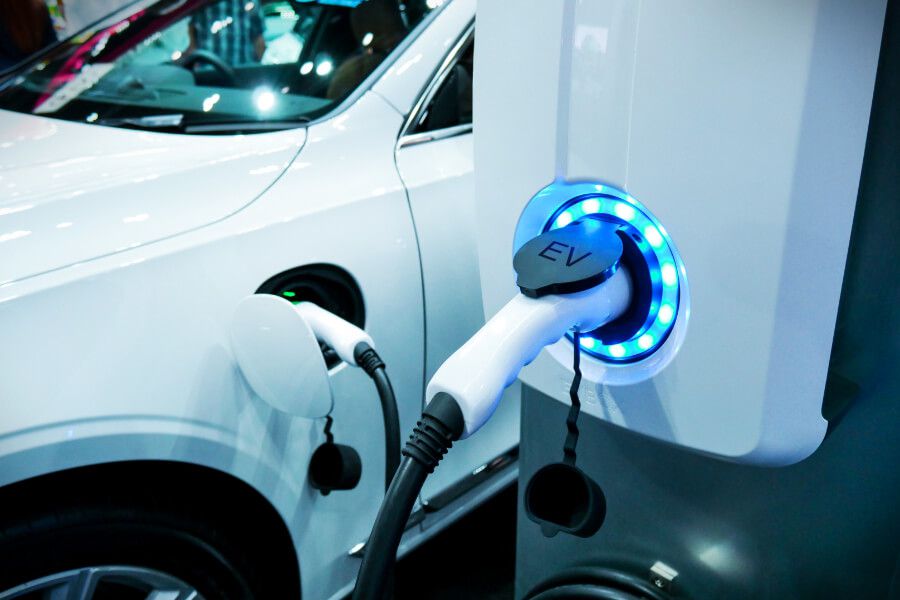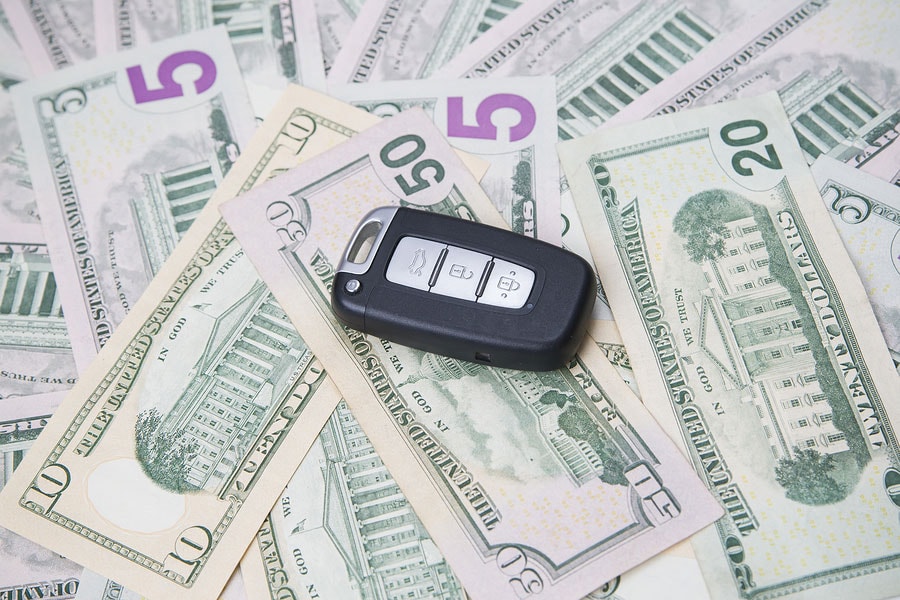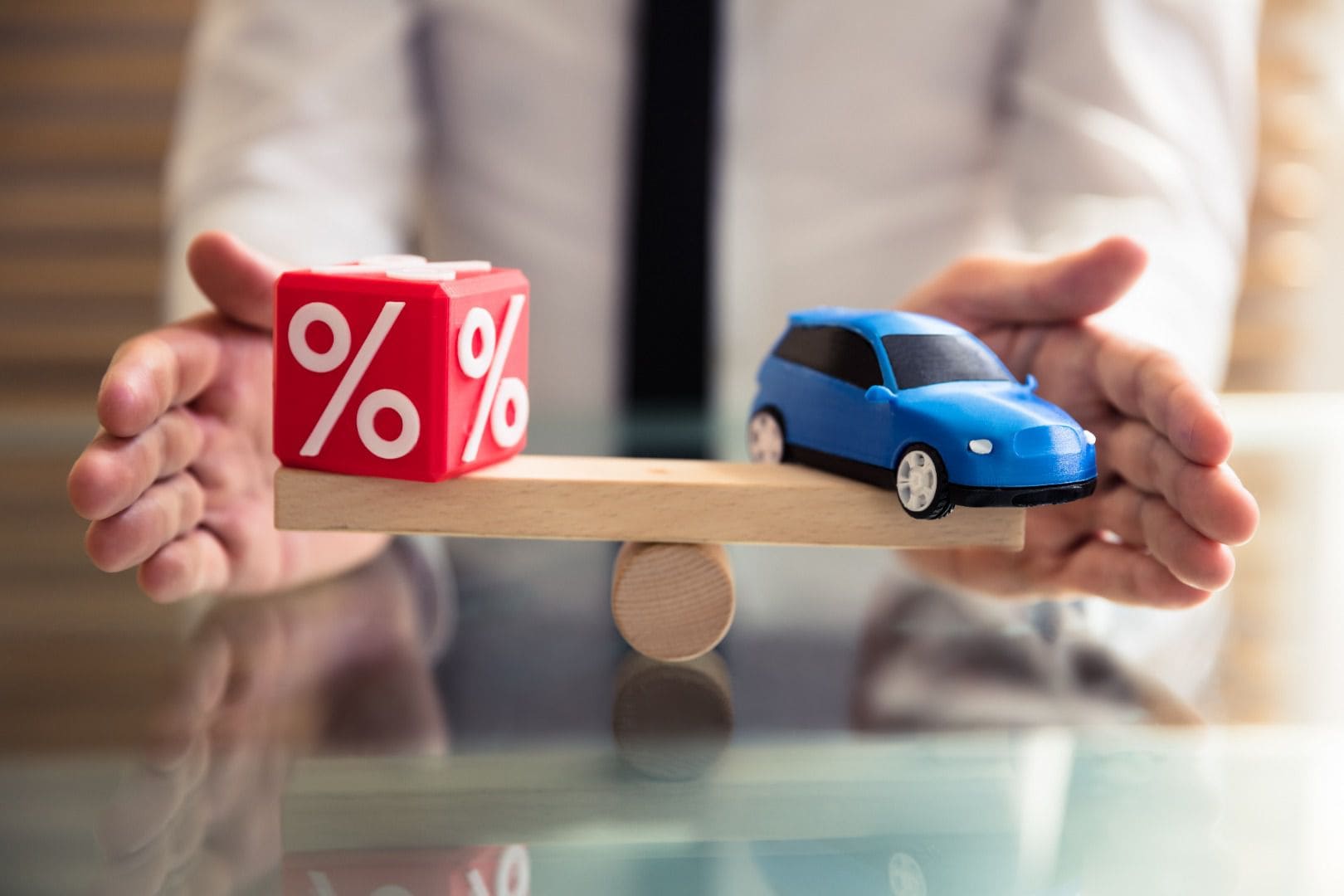Recent Articles
Popular Makes
Body Types
When Does It Make Sense to Buy a New Car to Save Fuel?

Car loan ・ Photo by terovesalainen - stock.adobe.com
Fuel prices have shot up like a gusher on the West Texas plains, and that has a lot of people thinking. With the national average at $4.20 per gallon, many car owners are seeing totals on the pump they’ve never seen before. The price per gallon is up about $1.30 per gallon versus just one year ago, a steep rise that certainly doesn’t go unnoticed. And drivers in California and Hawaii are particularly hard hit with gasoline in those states going for well over $5.00 per gallon. In the face of this rapid increase in fuel prices, it isn’t surprising that many consumers are rethinking their current vehicles. The past two decades have seen a sharp increase in the percentage of SUVs and pickup trucks on the road in an era when fuel prices remained relatively low. But now, when a car owner pumps $100 worth of gas into her tank, you can bet it gets attention. Pain at the pump is almost palpable, and purchasing a new, more fuel-efficient car seems like the right way to relieve that pain. But is it?
Ditch That Gas Guzzler
It happens one thousand times today. A motorist pulls into a local gas station, inserts his credit card in the slot, fills his tank with gasoline... and just about keels over when the total price comes up on the LCD screen. “Am I buying gallons of fine wine?” the car owner might ask. “I’ve got to do something about this. I’ve got to buy a better car.” You can’t blame the car owner for feeling fleeced by being required to pay 30 percent more for the same stuff they bought much cheaper a year ago. But the decision to buy a new car to solve the fuel-cost issue is unlikely to result in real cost savings. Instead, it could be the automotive equivalent of shooting yourself in the foot. It might lead to a slightly happier experience at the fuel pump, but in terms of household costs savings, it is very likely a losing effort.

Photo by Adobe Stock
Avoid the Knee-Jerk
To understand why a knee-jerk reaction to buy a more fuel-efficient car won’t save you money, it is important to look at car ownership in its entirety. Concentrating on one cost — even a cost that has shot up in price — without examining all the others is destined to end in failure. If your goal is to save money, you first must have a very good idea of where the money is going currently. And while the cost of fuel is in your face every time you pass a gas station, the cost of fuel isn’t at the top of the list when it comes to transportation-related costs. So even the eye-popping 30 percent increase in cost shouldn’t prompt a haphazard knee-jerk action.

Photo by Suchada Toemkraisri-Adobe Stock
Going Electric?
Looking at it through a fuel-cost lens, one might come to the conclusion that the most effective way to avoid high gasoline prices is to replace your gasoline-powered car with an electric car. That way, you don’t have any gasoline costs at all. Of course, you do have the cost of electricity to charge the EV’s batteries, so that must be considered. For those who charge their vehicles at home, the cost per mile driven of electricity is much less than the cost-per-mile of an average gasoline-powered car. From that angle, ditching the gas-powered car and buying an EV appears to be a no-brainer. But it is anything but a no-brainer when you consider the other costs involved in personal transportation. Taking those into account, the picture changes radically.

The Real Costs of Transportation
To get a true picture of the total cost of getting from here to there in an automobile, one has to look at all the expenses involved in the process. Fuel costs are certainly a component of the overall cost of personal transportation. Further, they are a very obvious cost because the driver sees the cost of a tank of gas with every fill up. It’s right there on the pump. But in the overall scheme of things, fuel costs are not nearly as important as other factors. These are the most important cost factors in transportation: vehicle insurance, licenses and fees, maintenance, repairs, financing (auto loan costs), and the biggest one of all for most motorists — depreciation.

Photo by Adobe Stock
Big Costs, Little Costs
When you consider each of these costs, some have a big effect, while others a much smaller effect. Depending upon the state in which you live, your registration and license fees could range from less than $100 to perhaps $500 annually. Today’s cars require less regular maintenance than in earlier days, so while costs for individual services are up, the overall costs for maintenance isn’t typically very large. The vast majority of new vehicles are well-built and largely trouble free, so repair costs are typically not big either. Plus many repairs are covered by warranties these days. This leaves the big three of transportation costs: insurance, financing, and depreciation. Insurance is dependent on when, where, how much, and how you drive, so you have some control over it. Financing costs are dependent on how much you borrow and how soon you pay it back. And then there is the big one — depreciation.

Photo by Adobe Stock
Dastardly Depreciation
Depreciation is simply the amount an asset loses value over time. A motor vehicle is a depreciating asset. Over the course of time, its value declines, and in comparison to some other assets, it declines quite quickly. During a normal ownership experience, a vehicle could lose 35 percent to more than 50 percent of its overall worth. In other words, a car you buy today for $40,000 could be worth $20,000 when you go to sell it in five years time. That’s an average of $4,000 per year. In contrast to fuel costs, even the worst gas-guzzler on the road won’t cost you $4,000 a year in gasoline. Further, when you buy a more fuel-efficient vehicle you don’t eliminate all fuel costs. You simply lessen those costs by a percentage.

Photo by Adobe Stock
Selling Used to Buy New
When you look at the proposition of selling a current vehicle with relatively poor gas mileage to buy a new car with much better gas mileage, depreciation is a giant hurdle. A new car will almost certainly cost more than your current car is worth, but even if you buy a new car that has the same value as your current car, the new vehicle will likely depreciate more rapidly costing you more money. The difference between the fuel costs of a 40 mpg vehicle versus a 20 mpg vehicle will not be enough to offset the depreciation loss. When you add the other costs typically involved in buying a new car — financing, fees, insurance, etc. — it becomes even less of a winning proposition.

Photo by terovesalainen - stock.adobe.com
An Example
To illustrate another issue, consider two closely related models from the same brand. One is a plug-in hybrid while the other is a similarly equipped conventionally powered vehicle. For the sake of this comparison, most of the parameters are kept equal. The ownership period for each is six years, and each will be driven 12,000 miles annually. Each will be financed for five years at the same interest rate, and the same down payment is made on both vehicles. The price of gasoline is the current national average of $4.20 per gallon and electricity costs are at the current average for kWh. In this scenario, with all information verified by the National Highway Traffic Safety Administration’s fueleconomy.gov, the plug-in hybrid will save you $38 per month in fuel costs, but over the ownership period, the conventional vehicle will cost $8,197 less to operate than the plug-in hybrid.

Photo by sinenkiy.com.ua
Summary
While this is just a single example, it is representative of what car owners will experience. The higher purchase price of the typical high-mileage plug-in hybrid or hybrid will overshadow the fuel cost savings that are realized. If one were to go from a used full-size SUV to a used small hatchback of the same model year so the new car could be purchased in what amounts to a one-for-one swap, then things could change. The car owner would achieve fuel-cost savings that would be meaningful because most other factors would remain relatively the same. But this kind of substitution is very rare in the market. So to answer the question, "When does it make sense to buy a new car to save fuel," the answer is almost never.
